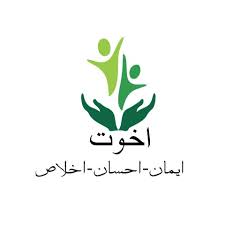How Poverty Forces People to Take Desperate Actions can be seen in the heartbreaking stories of individuals risking everything for a better future. Recent incidents involving Pakistani immigrants drowning in the waters of Greece and Spain are painful reminders of the despair young individuals face in Pakistan. Despite the risks and the tragic stories, these youth embark on perilous journeys, clinging to the hope of escaping poverty.
How Poverty Forces People to Take Desperate Actions: Understanding Poverty and Its Impact
How Poverty Forces People to Take Desperate Actions is more than just a statement—it’s a harsh reality for millions. Poverty is not merely the absence of financial resources but a state of despair, hopelessness, and limited opportunities. In Pakistan, poverty forces countless individuals, especially the youth, to consider drastic measures to improve their lives. From risking illegal migration to falling into debt traps, poverty leaves them with few viable options.
How NGOs Are Combating Poverty
In Pakistan, numerous non-governmental organizations (NGOs) are actively addressing poverty. Among these, Dr. Amjad Saqib stands out for his pioneering work through Akhuwat, an organization providing interest-free loans to the underprivileged. His efforts have uplifted millions from poverty, offering them a chance to rebuild their lives.
Akhuwat’s Innovative Microcredit Model: A Key to Overcoming Poverty

Dr. Amjad Saqib’s groundbreaking work in microcredit is detailed in his book, Poverty and Microcredit. The book outlines how microfinance can empower the poorest segments of society, providing them with the tools to achieve financial independence. It delves into the principles of loan distribution, business monitoring, and repayment, offering a comprehensive guide to sustainable poverty alleviation.
Tackling the Challenges of Lending to the Poorest
One of the significant risks highlighted in Poverty and Microcredit is lending to the poorest individuals. Traditional financial institutions hesitate to extend loans to those below the poverty line due to the high risk of non-repayment. However, Akhuwat aims to bridge this gap by focusing on people just above the poverty threshold, gradually helping them rise to stability.
How Poverty Forces Rural Communities to Seek Support
Akhuwat has also addressed the unique challenges faced by small-scale farmers. Large banks typically prioritize loans for big landowners, leaving small farmers without resources to grow their businesses. Akhuwat’s Rural Support Program has become a lifeline for these farmers, offering them interest-free loans and the support needed to succeed.
Why Microcredit Matters in Combating Poverty
Microcredit is not without its critics, but its impact is undeniable. It empowers individuals to become self-sufficient, fosters entrepreneurship, and reduces dependency on aid. The ripple effects of such programs are evident in improved living standards, better education for children, and stronger community ties.
Combating Poverty: A Shared Responsibility
How Poverty Forces People to Take Desperate Actions should serve as a wake-up call for governments, NGOs, and society at large. Combating poverty requires a collective effort. While organizations like Akhuwat are making significant strides, more awareness and collaboration are needed to address the root causes of poverty.
Conclusion: Breaking the Cycle of Poverty
How Poverty Forces People to Take Desperate Actions is a stark reality for many in Pakistan and around the world. Programs like Akhuwat demonstrate that with the right support and innovative solutions, even the most vulnerable can find hope and stability. Addressing poverty is not just about financial aid—it’s about empowering people with opportunities to lead dignified lives.
By focusing on sustainable solutions, society can work towards breaking the cycle of poverty and creating a brighter future for all.
If you’re interested in reading this book, click the link below for a free download.
https://drive.google.com/file/d/14RRALE12Jc7rdPD2B98-vziv0lsg3qZk/view?usp=sharing
If you’d like to listen to this book in audio format, click the CONTACT button below to get in touch with the AwazeUrdu team to order the audiobook.
Contact us:You can also watch the same video on these social media platforms.
Facebook Febspot Rumbleغربت یامالی تنگی انسان کوکچھ بھی کرگزرنےپرمجبورکردیتی ہے۔ حال ہی میں پاکستانی تارکینِ وطن کےیونان اورسپین کے سمندرمیں ڈوبنےکےحادثات اس بات کاثبوت ہیں کہ پاکستانی نوجوان اپنےمستقبل سے کتنےمایوس ہیں کہ آئےان ایسےحادثات کی خبریں سننے کےباوجوداچھےمستقبل کی آس میں اس پُرخطر سفرپرنکل کھڑے ہوتے ہیں۔ پاکستان میں کئی این۔جی۔اوز۔اس حوالےسے مختلف طریقوں سےاہم خدمات سرانجام دے رہی ہیں۔
اس حوالےسے ڈاکٹرامجدثاقب کانام کسی تعارف کامحتاج نہیں۔ آپ نے”اخوت” کےنام سے غریب طبقات کوغیرسودی قرضوں کی فراہمی کاجونظام قائم کیاہے، اس کی وجہ سے اب تک لاکھوں لوگ غربت سے باہرآچکےہیں۔ انہوں نےاپنی اس کاوش کےبارے میں ایک کتاب”غربت اورمائیکروکریڈٹ تحریرکی ہے، جس میں مائیکروفنانسنگ کےبارے میں بتایاگیاہے۔ اس کےعلاوہ مائیکروفنانسنگ اداروں کےذریعےقرضوں کی تقسیم،کاروبار کی نگرانی اورقرض وصولی کےاہم اصول وتصورات پر بھی اس کتاب میں روشنی ڈالی گئی ہے۔
اس کتاب کا جو اقتباس اس ویڈیومیں پڑھ کرسنایاگیاہے۔ اس میں غریب ترین لوگوں کو قرض دینےکےحوالےسے خطرات کاذکرکیاہے۔ انہیں کوئی بھی ادارہ آسانی سےقرض دینےپرتیارنہیں ہوتاکیوں کہ واپسی کی امیدنہایت کم ہوتی ہے۔ اس کےبالمقابل خطِ افلاس سےبالکل متصل لوگوں میں قرض واپسی کی شرح نسبتاً بہترہے۔ توپھر غریب ترین عوام کو کم ازکم خطِ افلاس تک لاناپہلاہدف ہوا۔
انہوں نے اس اقتباس میں غریب ترین کسانوںکاذکر بھی کیاہے، اورانہیں اس غربت سے نکالنےکی کوششوں پربات کی ہے۔ ان کاکہناہےکہ بینکوں سے قرضہ صرف بڑے کسانوں کودیاجاتاہے توچھوٹے کسانوں کاکیاہوگا۔ ان کےلئے “اخوت” نے “رُورل سپورٹ پروگرام”شروع کیاہے۔ اکثر لوگوں کو مائیکروکریڈٹ پروگرام سےاختلافات ہیں، مگر اس کی اہمیت اپنی جگہ مسلّم ہے اوراس کےاثرات معاشرے پرنظر آنےلگے ہیں۔

